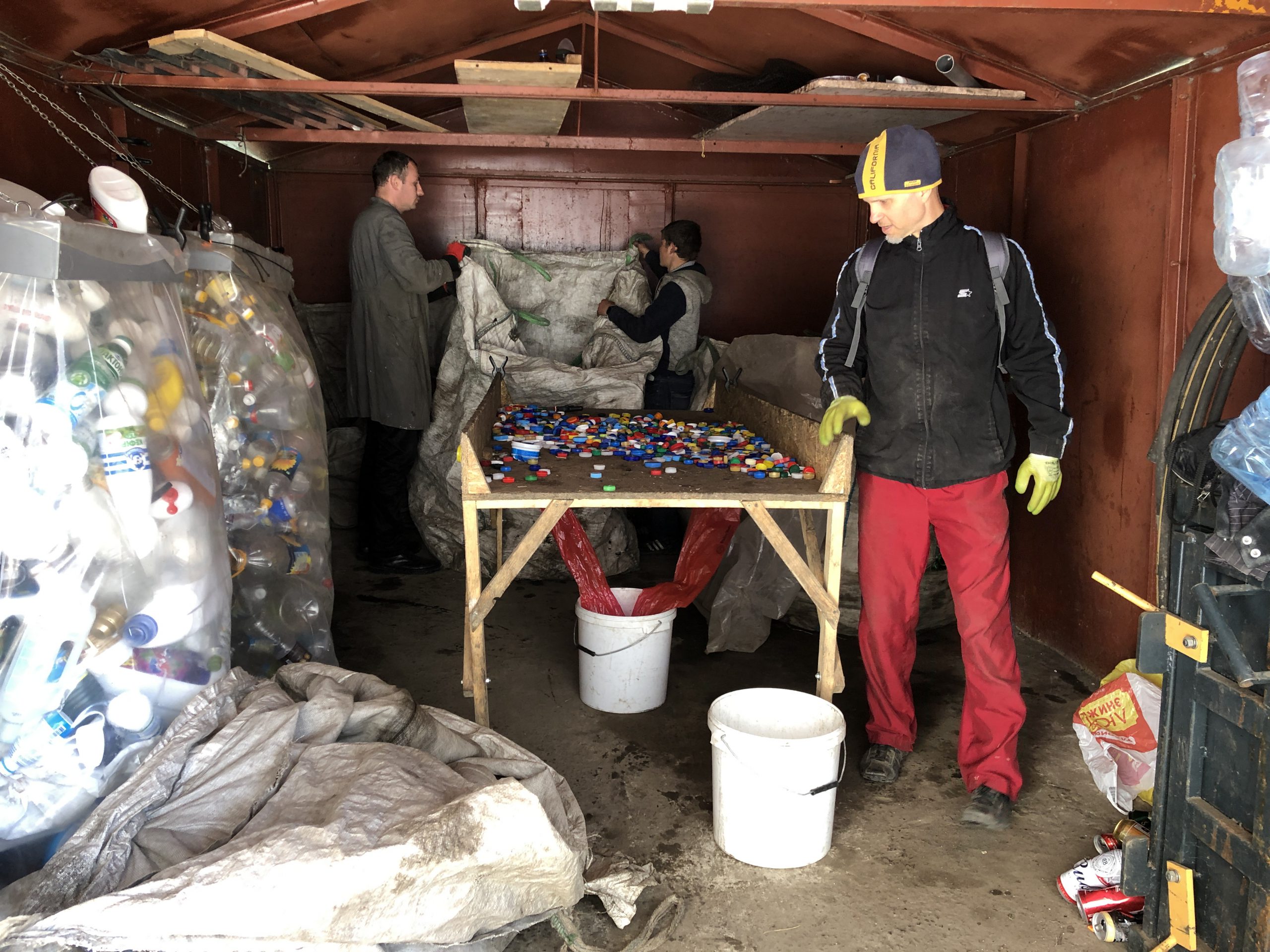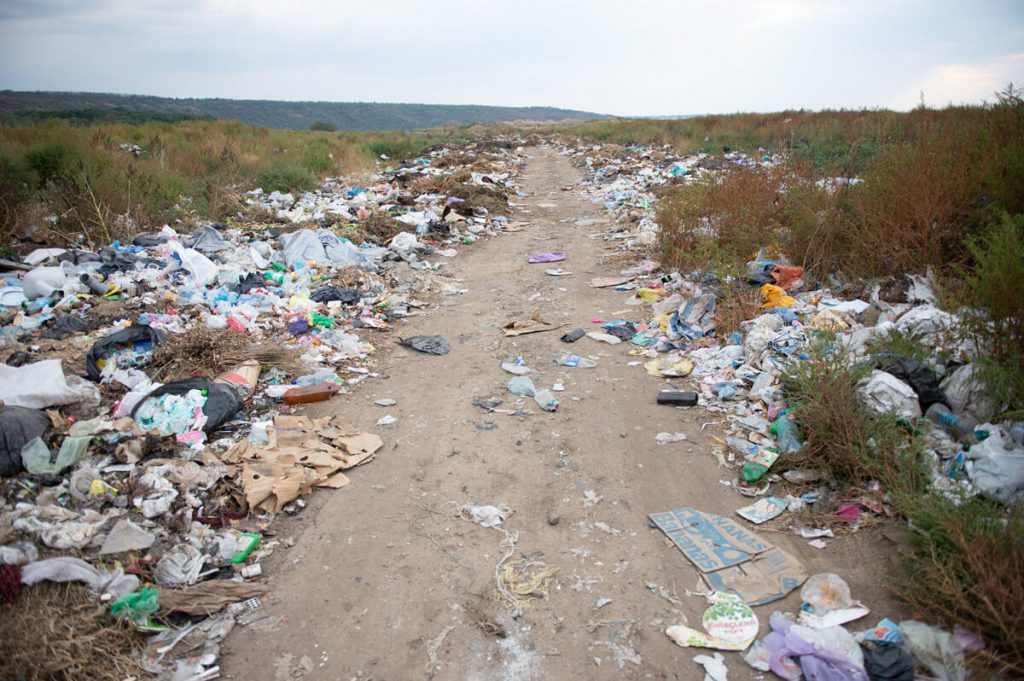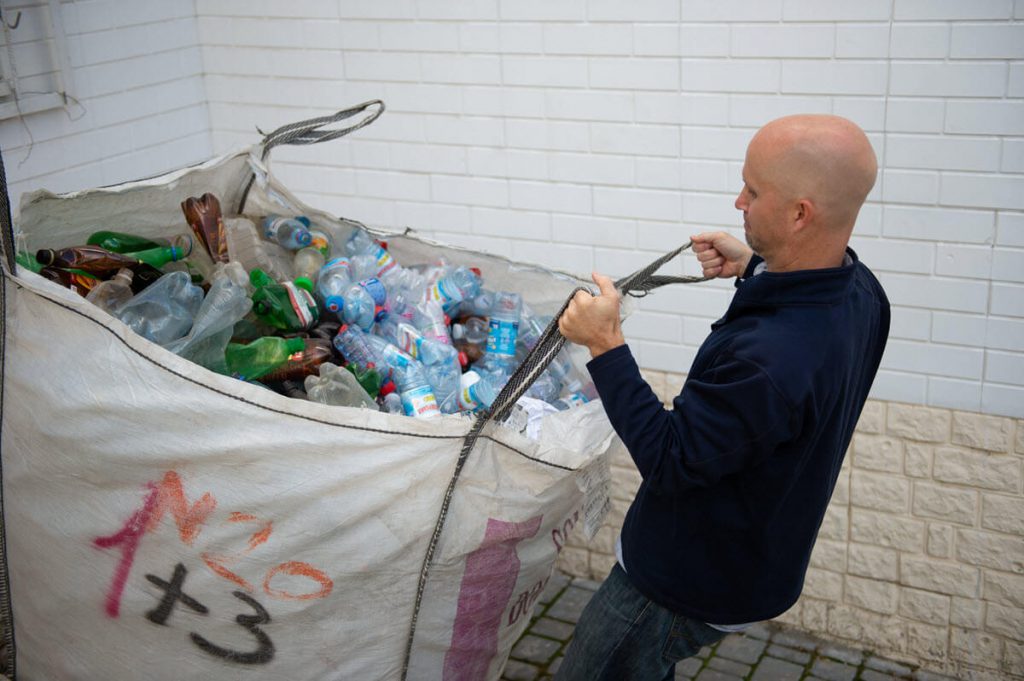
Ministry Updates
Freed from Addiction — Through Recycling
August 12, 2020
by Heidi Chupp

Kurt drove away from the rehab center — and from his friend Zhenya. As the miles went by, he felt a growing relief. For the first time in months, the heavy burden of responsibility that came with helping Zhenya was lifting.
Caring for Creation and Their Community
Kurt and Rochelle zurBurg have served as TEAM missionaries in Odessa, Ukraine, for more than 12 years. Their ministry has included a variety of activities — from apartment building repairs to backpacking to teaching science classes. It is always, “at its core,” Kurt says, “about serving people and sharing Jesus with them in relationship.”
In 2013, the couple started a community recycling project.
About 10 percent of Ukraine’s land mass is covered in trash, making creation care initiatives vital. The project has also helped some of their neighbors in difficult life situations: It’s provided jobs for widows with small pensions and others living from one meal to the next.
And it was through the recycling project that Kurt first met Zhenya.
‘This is Crazy’
One summer day, Kurt and his co-worker were overwhelmed with the amount of recycling work they had to do. On an impulse, Kurt got on his bike and rode off, looking for someone else who could help.
“I had no idea what I was doing, just that I was desperate for help,” Kurt remembers.

During the communist era taught Ukrainians that trash was the government’s job. Now the streets are covered with trash — creating a huge amount of work for Kurt’s recycling ministry.
As he rode by a small convenience store, Kurt saw a man sitting out in front, in obvious poverty.
“I passed him and then had this weird sense that I needed to go and ask him if he needed work,” Kurt says. “I remember thinking, ‘This is crazy, God. What am I doing?’
“He said ‘yes’ right away. His name was Zhenya, and he became one of our best and hardest workers out of everyone.”
As they began working together, Kurt learned that Zhenya had been heading for a navy career until alcohol, drugs and homelessness sidelined him. He’d been living on the streets for more than a year when Kurt met him.
Not only was Zhenya a great help with the recycling work, but he also provided what Kurt calls “an enormous immersion” into the lives of people experiencing homelessness.
He still remembers something Zhenya told him early on: A handout from someone was okay – but it was demeaning. A job, on the other hand, provided purpose, dignity and respect.
High Hopes for Zhenya
Zhenya’s addictions meant that sometimes when he came to work, he would be drunk or high.
With a desire to help Zhenya break free, Kurt began hunting for a rehab center. He found a Christian program less than two hours away and brought it up to Zhenya, explaining that it had to be his choice.
After some hesitation, Zhenya agreed to try rehab, and Kurt dropped Zhenya off with high hopes.
But that didn’t last very long.
Not Abandoning Their Friendship
Kurt arrived home feeling free from the weight of care for his friend. But there, sitting by the entrance of Kurt’s apartment building, was Zhenya.
“On record, that was the shortest stay ever at the rehab center,” Kurt says.
He was not only surprised, but angry, sad and disappointed too.
But as he thought about it later, Kurt realized that Zhenya was not abandoning their relationship when he abandoned rehab. In fact, Zhenya’s first action was to let Kurt know about his decision.
“I couldn’t see it then, but Zhenya was becoming my friend,” Kurt says, “and I was becoming his friend too.”
Another Chance at Rehab
Zhenya continued to work in the recycling project with Kurt into the fall and winter, all the while living on the streets. But his poor health caught up with him.
“He showed up to work one day, and he did not sound or look good,” Kurt remembers.
Eventually Zhenya’s condition deteriorated so much that Kurt and a friend took Zhenya to the hospital. It took him about two months to recover. As Zhenya’s discharge date neared, Kurt approached him again about rehab.
“We sure didn’t want him to go back to life on the street,” he says. “This time, he seemed readier and more willing to go.”

Having work to do helped Zhenya stay focused on his recovery, so Kurt started bringing him recyclables to wash and sort.
Rehab was a months-long process for Zhenya. His body needed time to be completely free from his addictions, and Zhenya needed to establish new routines for life.
Having work to do helped immensely, so Kurt brought Zhenya bottle caps from the recycling project to wash and sort. Eventually, Zhenya even started supervising several other residents who worked for the recycling project as well.
A Life-Changing Choice
Zhenya has been drug and alcohol free for nearly two years now. But his choice to stay in rehab the second time around led to an even more life-changing choice: to become a follower of Jesus.
Zhenya grew in his faith at the center, devouring Scripture, taking classes at a local seminary and meeting for Bible study during Kurt’s regular visits.
“God changed this man both inside and out,” Kurt says. “His life is pointed in the direction of Jesus.”
Since leaving rehab, Zhenya has married, and he and his wife have a newborn son. He has been working at a steady job for more than a year.
Even though Kurt and Zhenya no longer work together, Kurt continues to learn from his friend.
“Sometimes I think that this entire story had very little to do with plastic recycling and creation care,” Kurt says, “and much more to do with God redeeming the life of a homeless man whom He loves dearly.
“If that’s true, then we would do it all again . . . gladly.”
Related articles




